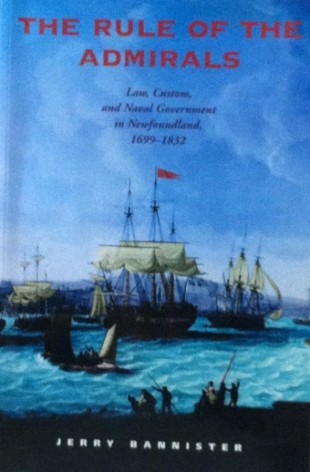by Jerry Bannister, Professor of History, Dalhousie University. Published with the University of Toronto Press, 2003.
The past two decades have witnessed a remarkable expansion in the study of the trans-Atlantic links of the British empire. This wave of historiography has passed by Newfoundland. Although most scholars acknowledge the role of the cod fishery in the Atlantic economy, Newfoundland is usually neglected or simply omitted from studies of the first British Empire. Early popular histories created enduring stereotypes which unduly emphasized the island’s lack of social and governmental structures, particularly the alleged weaknesses of Anaval government. With few exceptions, historians still see eighteenth-century Newfoundland through the lens of cultural exceptionalism as an isolated backwater cut off from the mainstream of Atlantic commerce and politics. In this original and perceptive work, Professor Bannister requires us to rethink much of what we know about early Newfoundland history. By addressing the issue of how the island was governed in the 130 years prior to the establishment of an elected assembly, and by placing his analysis firmly within the material conditions of Newfoundland society, he provides a striking reinterpretation of a critical period in the island’s colonial development.


